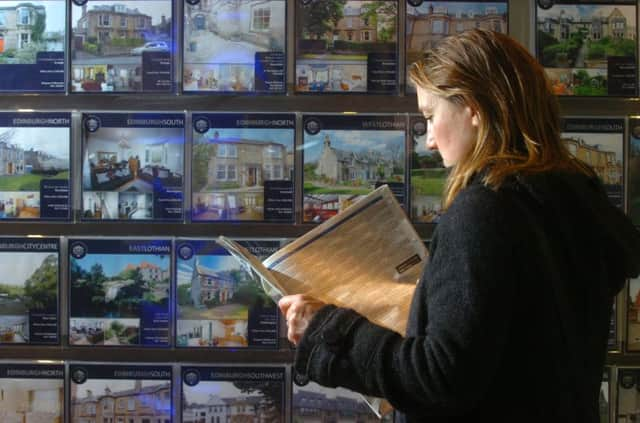Debt threat to families as interest rates rise


HOUSEHOLDS have been told to start preparing now for higher interest rates as experts warn that even a modest increase could leave many Scots struggling.
Interest rates are expected to rise in the early weeks of 2015, almost six years after the Bank of England cut the base rate to the current 0.5 per cent.
Advertisement
Hide AdAdvertisement
Hide AdBut a combination of low interest rates, inflation, stagnating wages and the government’s austerity policies has weakened household defences and made it harder to build a buffer against financial shocks.
With the base rate at 0.5 per cent since March 2009, returns on savings accounts have struggled to beat inflation. And while some households have benefited from low mortgage costs, others have struggled to clear debts.
One in five mortgage borrowers would “really struggle” with any interest rate increase, according to a report published last week by the Money Advice Service. Almost half would find it difficult to cover mortgage payments if they were to increase by £150 a month (the likely impact on a 20-year £150,000 loan if interest rates went up by as much as 2 percentage points).
Yet 56 per cent admit they have no contingency plans to fall back on in the event of rates going back up.
Borrowers on variable rates are especially at risk, although homeowners on short-term fixes are also vulnerable to a rate rise.
Stephen Titterington, financial planner at Johnston Carmichael Wealth in Edinburgh, said: “Those with variable rate mortgages will feel the pinch most as they have benefited from an unprecedented period of low interest rates and lower monthly payments. Wages are not growing as rapidly in these austere times and so any increase in monthly costs would be most unwelcome.”
Borrowers able to secure a new fixed deal, without incurring a penalty, should consider doing so soon, he said.
“A mortgage is probably most people’s biggest liability and if you expect interest rates to rise soon then it makes sense to try and fix your rate now with the best deal you can,” he said.
Advertisement
Hide AdAdvertisement
Hide AdYet while mortgage costs could climb, there’s little prospect of banks and building societies passing on any significant interest rate rise to savers. Experts suggest that savers might get the full benefit of the first 0.25 per cent rate hike before providers use further increases to bolster their margins.
“Savers should try to avoid tying themselves into any long-term fixed savings rates as this could backfire if rates rise above the new fixed rate,” said Titterington.
The biggest challenge will be faced by the households already experiencing financial difficulties.
If the base rate climbs to 3 per cent by 2018 – the trajectory the markets consider most likely – the number of households in “debt peril” will double to 1.1 million, according to the Resolution Foundation.
The charity, which defines those in debt peril as spending more than half their take-home income on debt repayments, said some 800,000 households could become “mortgage prisoners”.
Sharon Bell, head of StepChange Debt Charity Scotland, said: “Any rise in interest rates will be a significant challenge to households for two reasons: they are already struggling under both a big increase in the cost of living and the longest period of falling real wages in 50 years.
“This means that while our average client debt is falling, it is expanding in concerning new areas, notably arrears with essential household bills.”
A survey carried out by the charity in June found that almost a third of its clients north of the Border were behind on their mortgage repayments, owing an average of £2,467. Four in ten had council tax arrears averaging £1,534 – the highest in the UK – and more than one in ten owed money to their energy provider.
Advertisement
Hide AdAdvertisement
Hide AdTenants could particularly suffer if landlords hike rents in the wake of interest rates going up. More than one in three tenants using the charity’s Scottish service is in arrears – an increase of 10 per cent since 2010.